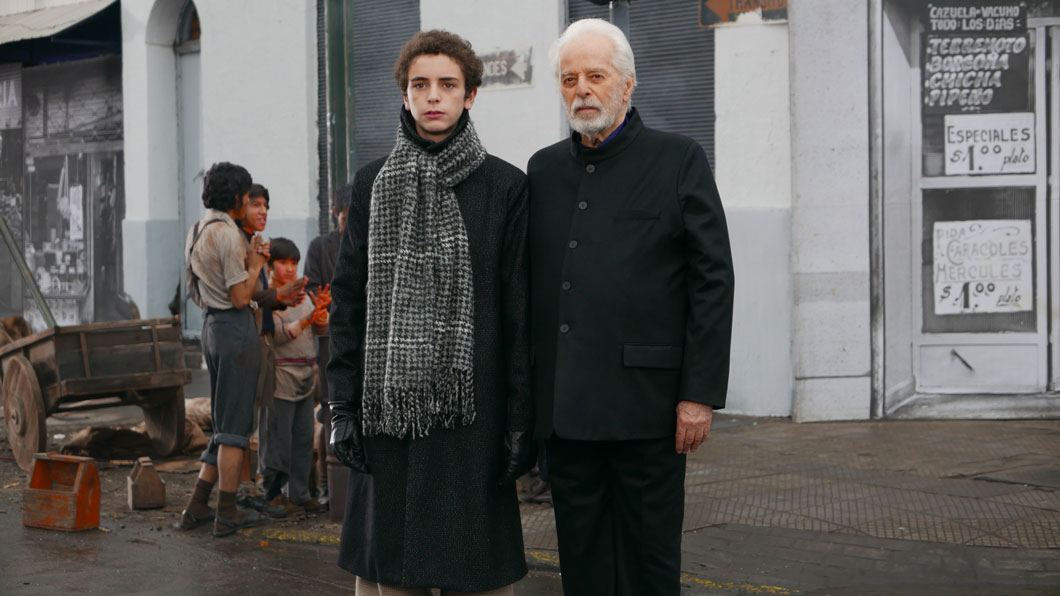
Poesia sin fin is a two-hour long exercise in ‘deepity’. Photo: Pascale Montandon Jodorowsky
American philosopher Daniel Dennett adopted the term ‘deepity’ to refer to a statement that sounds profound but is actually trivial or just meaningless. And Poesía sin fin, the new film by Chilean-French filmmaker and self-proclaimed poet Alejandro Jodorowsky, is nothing but a two-hour long exercise in deepity, sugar coated with pseudo-surrealism that would make Luis Buñuel furiously roll in his grave.
This autobiographical movie revolves around the conflict between young Alejandro, played by Jodorowsky’s own son, Adán, and his stern father, Jaime (played by Brontis Jodorowsky, Adáns older brother). Jaime appears in one scene as a floating, talking head that shouts “maricón!” to Alejandro for daring to write poetry instead of becoming a doctor. The young poet discovers that he is not a homosexual, and happily proclaims that he “didn’t feel anything” after being lustfully kissed by his saviour, another young man, whose broken heart he is oblivious to. This kind of cruel behaviour becomes a distinctive trait of Alejandro throughout the movie.
After leaving his house and his cartoonish family (Jewish stereotypes included), Alejandro finds refuge in the bohemian community of Santiago, Chile, populated, as the film puts it, by no less cartoonish artists. Tortured souls that seek creative freedom by smashing down pianos and wildly dripping paint on canvas a la Jason Pollock. Among this troupe that blindly recognises and proclaims their new member as a “Poet!”, Alejandro starts looking for his muse, which he soon finds incarnated in an angry female poet. A city female warrior who can literally save his ass from a gang of gay rapists in a cheesy bar fight where text bubbles with words like “POW! or “WHAM!” are the only detail that the director curiously forgot to include.
This level of cheesiness could lead one to think that it is the actual intention of Jodorowsky to mock the naivete of his younger self, but that would be a big mistake. He really intends for all of this pantomime to be taken seriously and tricks us into thinking that there’s a profound and life-changing message hidden below the surface. When you scratch the colourful coat of failed allegories such the dwarf Hitler or the corset that rises to the sky tied to heart-shaped balloons, however, what you find is the over-inflated ego of an elderly man who still thinks he is a revolutionary poet creating disgusting images “pour épater la bourgeoisie.”
When a fascist dictatorship takes hold of Chile, Alejandro decides to try his luck in France, leaving behind a crowd of flat characters, one of the few symbolic images that actually makes sense in the whole movie. The film closes with the scene in which the young poet overcomes the old grudges he held against his father, but (spoiler alert) what the movie inadvertently shows is how the old Jodorowsky has become a salesman just like his father. The sole distinction is that his father, in spite of his flaws, was an honest man, while Jodorowsky ends up working for the same system that transforms cheap poetry into money, betraying the young naive artist he once was.
Opens in theatres on October 18.
By Carlos H. Guzmán – @artifexludi





